Legend has it that the king of Kazakhstan sent his royal messenger to the emperor of India, Jalal ud-din Muhammad Akbar, with three profound questions. Akbar’s nava-ratna, nine jewels, were nine people of extraordinary talents. Known for his wit and wisdom, one of them was Birbal. The king wanted to hear the answers in person so, Birbal was seen off to deliver the same.
“Where does God live?” the king of Kazakhstan asked his first question.
Birbal demanded a glass of milk in response. As soon as he got it, he dipped his fingers in the glass and started rubbing them.
“Hmm…” he said shaking his head. “There’s no butter in this milk.”
Everyone in the court laughed out loud, and then the king said, “You have to churn milk to get the cream. Further, the cream must be churned to extract the butter.”
“Exactly, Your Excellency,” Birbal said. “The butter is in the milk but we can’t see it. The milk has to undergo a certain process before we can taste the butter. Similarly, God lives in all living beings but an individual has to purify himself to experience the presence of God. He has to churn his consciousness and erase his ignoble thoughts, feelings and desires to extract the divinity.”
“Very well,” said the king, pleased with the answer. “What does God eat?”
A hush fell over the court.
“Clearly, if God lives then he must eat something too,” he added.
“Indeed, Your Majesty,” Birbal replied instantly. “God does eat. He feasts on the false pride we humans have. Our history bears witness to this. Eventually, everyone is brought to justice in the divine court of law. Anyone who seeks God has to offer his ego.”
“Beautiful!” exclaimed the king. “And, what does God do?”
“To answer this question, you’ll have to come closer to me,” Birbal said.
The king was taken aback at the instruction but curious to find the answer, so he stepped down from his throne and went where Birbal was standing.
“I can only answer your question by sitting on your throne,” Birbal said bowing his head.
The courtiers frowned at the suggestion and nervous whispers ran through the court.
“So be it,” the king said. “I must find the answer.”
With the utmost grace, Birbal climbed the regal staircase and sat on the throne, a place where no one other than the king had ever seated.
Resting his hands on the two diamond-studded armrests, Birbal spoke like an emperor, “This is what God does, O king! In an instant, an ordinary mortal like me, born into a poor family, gets to be the king whereas, on the other hand, you, a born king, are dethroned with the least resistance.”
“You’ve proven beyond a doubt, Birbal, that the wittiest man on earth serves in Akbar’s court.”
The king rewarded him amply and Birbal was given a royal farewell.
By citing this story, I don’t mean to say that some ‘person’ is calling the shots up there. I leave that to your individual belief. I shared it here because the first time I’d come across this story, I absolutely enjoyed the deep philosophy and witty answers of Birbal. I thought you might too. Somewhere in Birbal’s answers, particularly the first one, there is great truth though.
Every now and then, people ask me how to feel God’s presence in their lives. I tell them to be grateful for all they have been blessed with because gratitude is the quickest antidote to negativity. And when you are positive and grateful, everything in this world looks divine. But, how to experience divinity on a more constant basis? I say practice compassion consciously. But, it’s not easy they reply. Then, I suppose, the only way out is to undergo self-purification. The more you purify yourself, the greater sensitivity you develop to perceive what normally lies outside human perception.
Leading a virtuous life and following a regular practice of meditation can purify anyone. Adopting virtues is even more important than meditation or any religious practice. Having said that, meditation does strengthen your mind, it makes you more mindful so that you can stand up to your principles in the face of temptations (and there will be many). But, my focus today is not on meditation. Instead, it is on humility, for, humility is the seed of divinity.
Overcome with spiritual ecstasy, an archbishop approaches the altar in a great rush. He gets down on his knees and cries, “I’m nobody, Lord! I’m nobody! Nobody!”
The bishop in attendance sees the extraordinary humility and devotional sentiment of the archbishop. Overwhelmed with love for God, he too runs to the altar yelling, “Lord, I’m nobody! I’m nobody, Lord!”
It so happened that a janitor was mopping the floor nearby. He saw how two deeply religious people were one with God. He got goosebumps. Filled with piety and a fervent spirit, he drops his mop and also dashes to the altar, proclaiming, “I’m nobody! Oh Lord, hear me, I’m nobody! Nobody!”
The archbishop takes notice, turns to the bishop and says, “Look, who thinks he’s nobody!”
False humility fails all spiritual tests. There’s no room for exhibitionism and vanity on the divine path.
Guru Nanak differentiates most beautifully between false external humility versus true inner humility. I quote:
miṭhatu nīvī nānakā guṇa caṃgiāīā tatu ॥ sabhu ko nivai āpa kau para kau nivai na koi ॥ dhari tārājū tolīai nivai su gaurā hoi ॥ aparādhī dūṇā nivai jo haṃtā miragāhi ॥ sīsi nivāiai kiā thīai jā ridai kusudhe jāhi ॥1॥ (Sri Guru Granth Sahib, Pg 470, Salok mėhlā 1.) Sweetness and humility, O Nanak, are the essence of virtue and goodness. Everyone bows down to himself; no one bows down to another. When you weigh it on the scale, the heavier side is always lower. The sinner, like the deer hunter, bows down twice as much. But what can be achieved by bowing the head, when the heart is impure? ॥1॥
As you begin to shed your ego, you become humble naturally. And humility, I may add, is the foremost prerequisite to imbibing the presence of God in your everyday life. Without humility, one can’t have any more than a dry intellectual understanding or rigid belief about God. Humility was the hallmark of the greatest saints, prophets and messiahs. Like ordinary mortals, they walked among us and quietly continued with their work.
The tree laden with fruit is always a bit bent. Not because of any burden but because it has something to offer. The humility of conduct and speech takes you closer to God. The more you have to offer, the more humble you are naturally. In the same storm where mighty winds fell giant trees, the humble blades of grass dance and sway unharmed.
Peace.
Swami
A GOOD STORY
There were four members in a household. Everybody, Somebody, Anybody and Nobody. A bill was overdue. Everybody thought Somebody would do it. Anybody could have done it but Nobody did it.
Don't leave empty-handed, consider contributing.It's a good thing to do today.

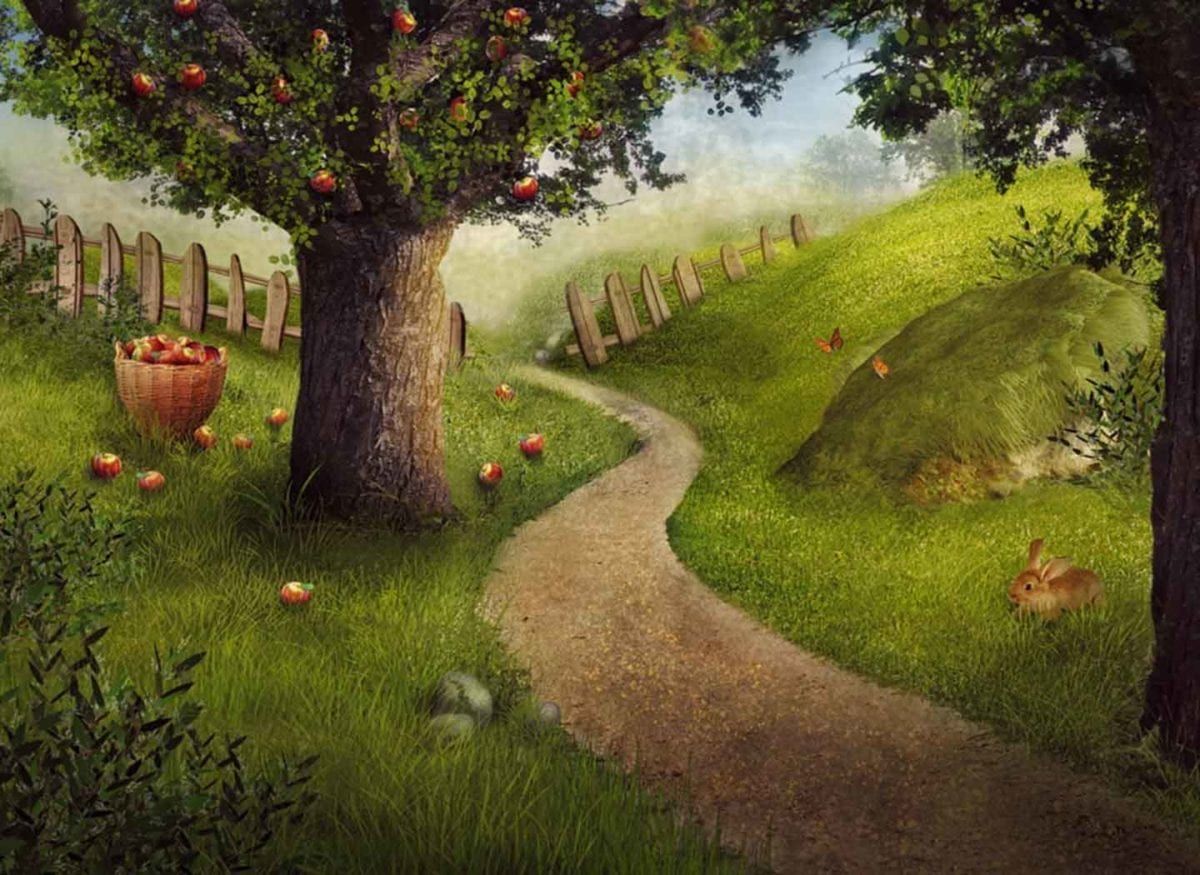
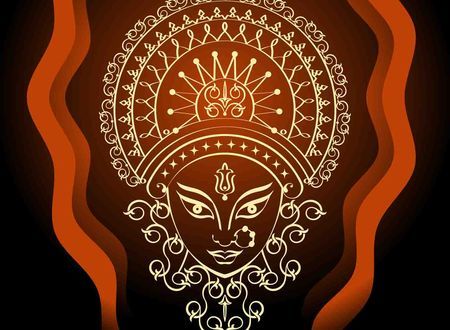
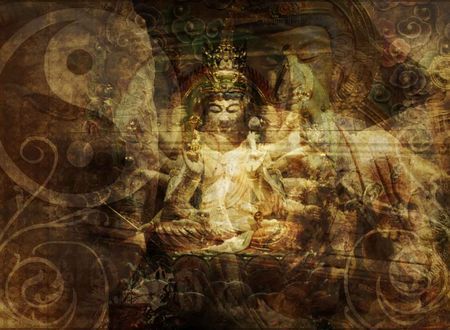
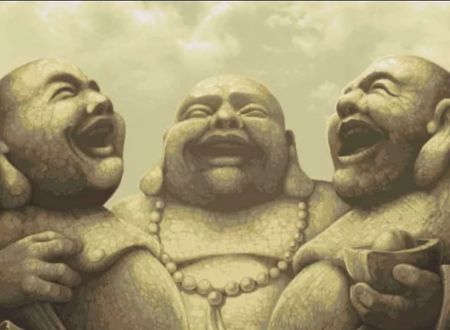
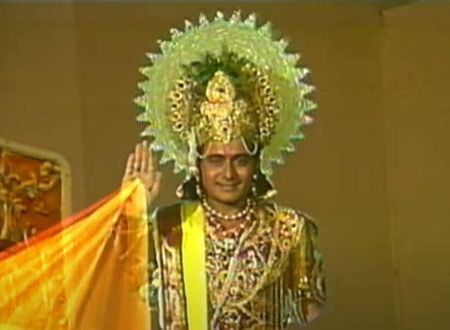



Comments & Discussion
10 COMMENTS
Please login to read members' comments and participate in the discussion.